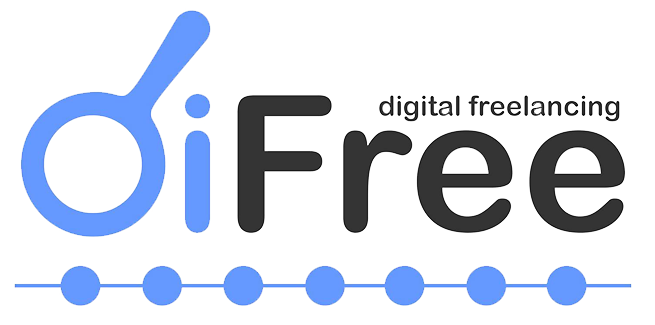Risorse bibliografiche

Autor, D. H., Dorn, D. (2013). “The growth of low-skill service jobs and the polarization of the US labor market’, American Economic Review, 103 (5), 1553–1597.
Bacigalupo, M., Kampylis, P., Punie, Y., Van den Brande, G. (2016). EntreComp: The Entrepreneurship Competence Framework. EUR 27939 EN. Publication Office of the European Union: Luxembourg.
Baker, D. (2015). The Opportunities and Risks of the Sharing Economy. Center for Economic and Policy Research. (CEPR): Washington, DC.
Berg, J. (2016), “Income security in the collaborative economy: Findings and policy lessons from a survey of Crowdworkers”, Comparative Labor Law and Policy Journal, Vol. 37, No. 3.
Buhr, D. (2015), “Social innovation policy for Industry 4.0”, Good Society – Social Democracy 2017 Plus Project, Friedrich-Ebert-Stiftung (FES), Bonn. Disponibile al sito: Social innovation policy for industry 4.0 (fes.de)
Carby-Hall, J., Mella Méndez, L. (2020). Labour Law and the Gig Economy: Challenges Posed by the Digitalisation of Labour Processes. Routledge: London & New York.
CEPS (2017). Impact of Digitalisation and the On-demand Economy on Labour Markets and the Consequences for Employment and Industrial Relations. Disponibile al sito: Microsoft Word – 20170612_EESCDigitalisation_FinalStudy_Clean (europa.eu)
Codagnone, C., F. Abadie and F. Biagi (2016a), “The Future of work in the ‘Sharing Economy’. Market efficiency and equitable opportunities or unfair recarisation?”, Institute for Prospective Technological Studies, JRC Science for Policy Report EUR 27913 EN (http://publications.jrc.ec.europa.eu/repository/bitstream/JRC101280/jrc101280.pdf).
Dagnino, E. (2015), “A (new) labour law for the on-demand economy? Five Ws and one (huge) H”, presentation given at the CEPS Winter School “From Uber to Amazon Mechanical Turk: Non-traditional labour markets driven by technological and organisational change”, INGRID FP7, CEPS, Brussels, 23-25 Novembre (www.ceps.eu/content/2015-winter-school).
Degryse, C. (2016), “Digitalisation of the economy and its impact on labour markets”, ETUI Research Paper, Working Paper 2016.02.
De Stefano V., Aloisi A. (2018). European Legal framework for digital labour platforms.
Publications Office of the European Union: Luxembourg.
Duggan, J., McDonnell, A., Sherman, U., Carbery R. (2022). Work in the Gig Economy: A Research Overview. Routledge: London & New York.
ENISA (2016). “Towards a digital dingle market for NIS products and services”. European Union Agency for Network and Information Security: Athens. Disponibile al sito: Towards a Digital Single Market for NIS Products and Services — ENISA (europa.eu)
ESCO (European Skills, Competences, Qualifications and Occupations), disponibile al sito: ESCO (European Skills, Competences, Qualifications and Occupations) | Digital Skills and Jobs Platform (europa.eu)
European Freelancers and Where to Find Them — Robert Vlach’s Talk at WebExpo 2021. Disponibile su Youtube: https://youtu.be/jFianOaxkeg
Freelancing in Europe 2021, disponibile al sito: https://web-assets.bcg.com/77/62/07a1c84f4be6b671ca10ec16f6f1/malt-bcg-freelancing-in-europe-2021.pdf
Frenken, K., T. Meelen, M. Arets and P. van de Glind (2016), “Smarter regulation for the sharing economy”, The Guardian, 20 Maggio.
Frey, C.B. and M.A. Osborne (2013), “The future of employment: How susceptible are jobs to computerisation?”, Technological Forecasting and Social Change, Vol. 114, pp. 254-280.
Harris, S.D. and A.B. Krueger (2015), “A proposal for modernizing labor laws for twenty-first century work: The ‘independent worker’”, Discussion Paper 2015 – 10, The Hamilton Project, Brookings Institution, Washington, D.C.
Hathaway I., and M. Muro (2016). Tracking the gig economy: New numbers. Brookings Institution: Washington, D.C. Disponibile al sito: Tracking the gig economy: New numbers (brookings.edu)
Maselli, I. and B. Fabo (2015), “Digital workers by design? An example from the collaborative economy”, CEPS Working Document 414, CEPS, Brussels.
Maselli, I., K. Lenaerts and M. Beblavý (2016), “Five things we need to know about the on-demand economy”, CEPS Essay No. 21, Brussels, 8 Gennaio. Disponibile al sito: CEPS Essay No 21 On Demand Economy.pdf
Morgan, G., Nelligan, P. (2021). The Creativity Hoax: Precarious Work and the Gig Economy: Precarious Work in the Gig Economy. Anthem Press: London & New York.
Mottola M., Coatney M. (2020). The Human Cloud: How Today’s Changemakers Use Artificial Intelligence and the Freelance Economy to Transform Work. Harper Collins: New York.
OECD (2016). “Automation and independent work in a digital economy”, Policy Brief on the Future of Work, OECD Publishing: Paris.
OECD (2019). The Sharing and Gig Economy: Effective Taxation of Platform Sellers: Forum on Tax Administration, OECD Publishing: Paris. Disponibile al sito: https://doi.org/10.1787/574b61f8-en
OECD (2021). The Impact of the Growth of the Sharing and Gig Economy on VAT/GST Policy and Administration, OECD Publishing: Paris. Disponibile al sito: https://doi.org/10.1787/51825505-en
Pesole, A., Urzí Brancati, M.C, Fernández-Macías, E., Biagi, F., González Vázquez, I. (2018). Platform Workers in Europe, EUR 29275 EN, Publications Office of the European Union: Luxembourg.
Popma, J. (2013), “The Janus face of the ‘New Ways of Work’. Rise, risks and regulation of nomadic work”, ETUI, Working Paper 2013.07, Brussels.
Renda, A., F. Simonelli, J.M. Leceta and T. Könnölä (2017), “Unleashing innovation and entrepreneurship in Europe: People, places and policies”, CEPS Task Force Report, Brussels, 25 Aprile.
Rosa, P., Guimarães Pereira Â, Ferretti F. (2018). Futures of Work: Perspectives from the Maker Movement, EUR 29296 EN, Publications Office of the European Union: Luxembourg.
Sinicki, A. (2019). Thriving in the Gig Economy: Freelancing Online for Tech Professionals and Entrepreneurs. New York: Springer.
Spiezia, V. and D. Gierten (2016), “New markets and new jobs”, OECD Digital Economy Papers, OECD Publishing, Paris.
Teodoro, R., P. Ozturk, M. Naaman, W. Mason and J. Lindqvist (2014), “The motivations and experiences of the on-demand mobile workforce”, Rutgers School of Communication & Information.
The Beginner’s Guide to Freelancing in 2022, disponibile al sito: https://smartblogger.com/freelancing/
The Digital Competence Framework, disponibile al sito: DigComp: the EU Digital Competence Framework | Digital Skills & Jobs Platform (europa.eu)
Todoli-Signes, A. (2015), “The end of the subordinate worker: Sharing economy, on-demand economy, Crowdsourcing, Uber economy and other ways of outsourcing”, 21 Dicembre. Disponibile al sito: https://papers.ssrn.com/sol3/papers.cfm?abstract_id=2719772.
Yuen Thompson, B. (2021). Digital Nomads Living on the Margins Remote-Working Laptop Entrepreneurs in the Gig Economy. Emerald Publishing Ltd: Bingley.
Woodcock J., Graham M. (2020). The Gig Economy: A Critical Introduction. Polity Press: Cambridge.




 English
English